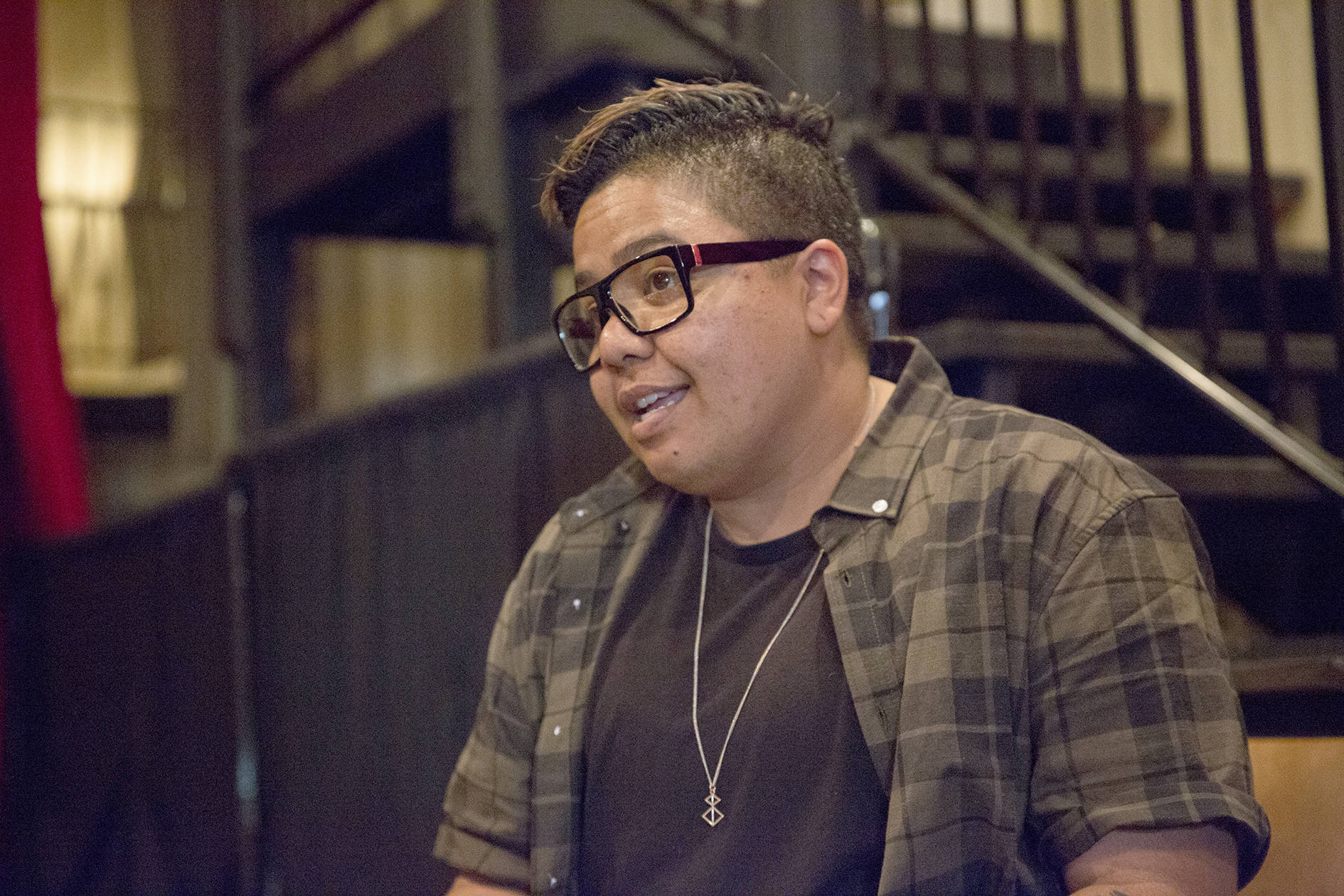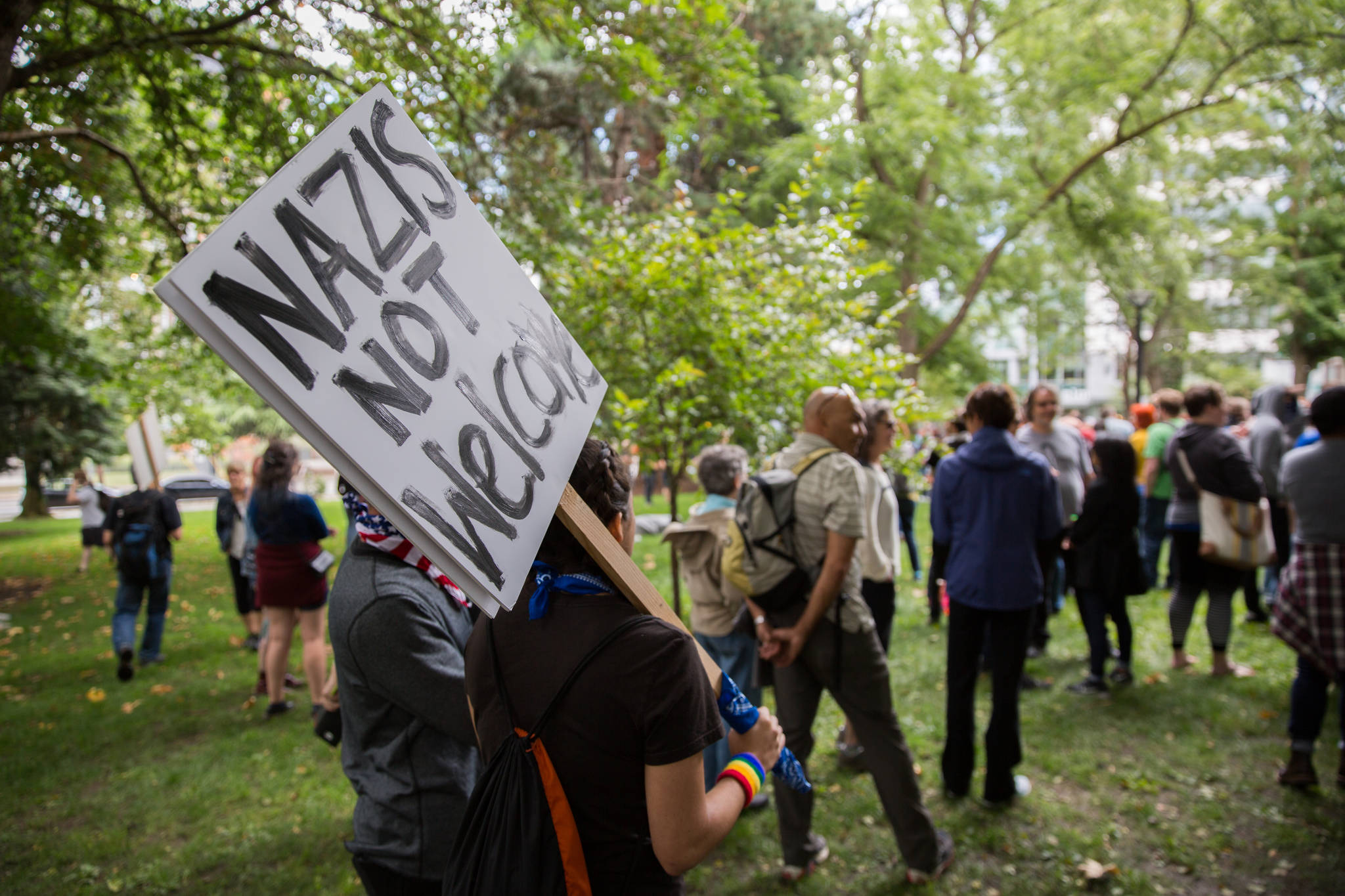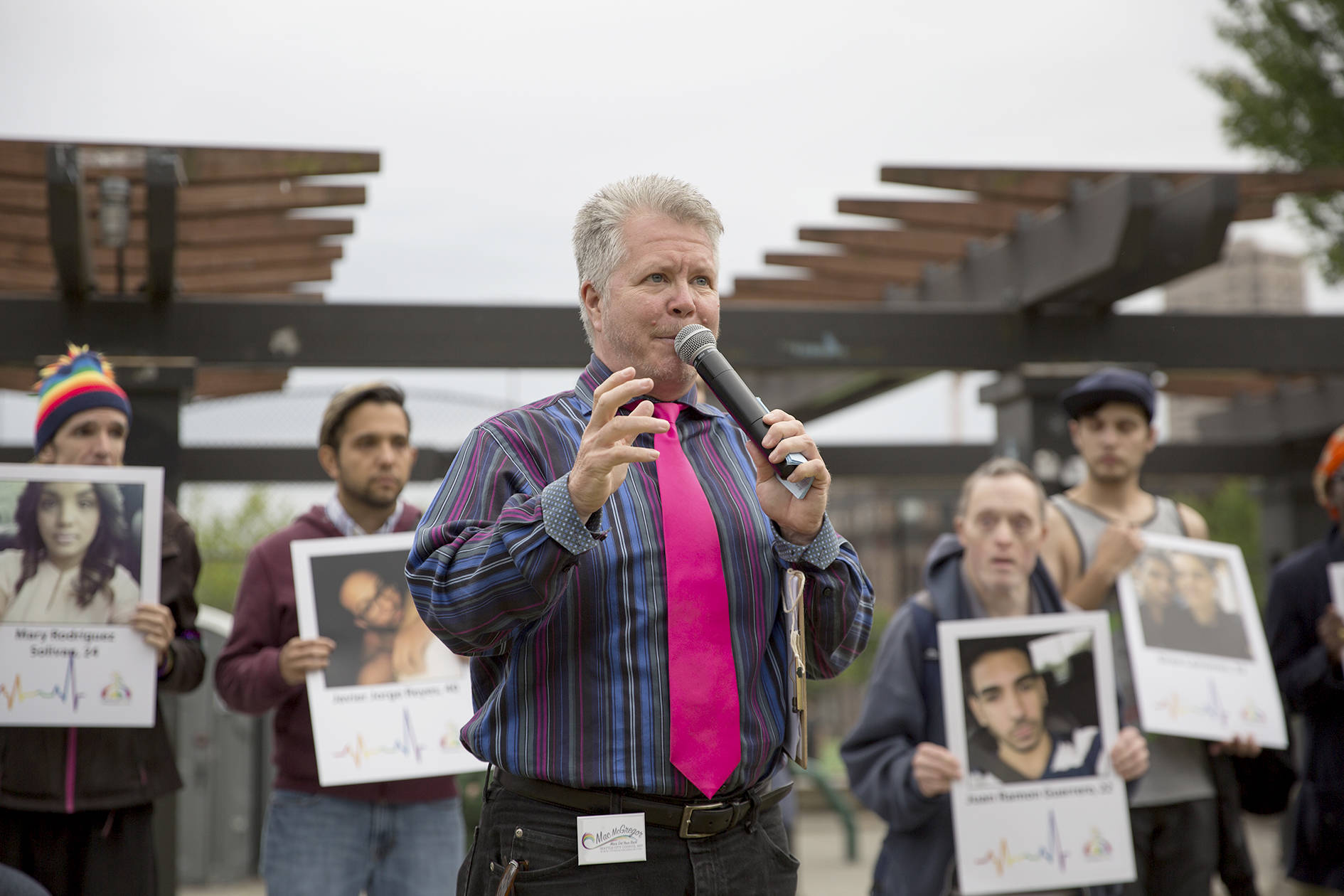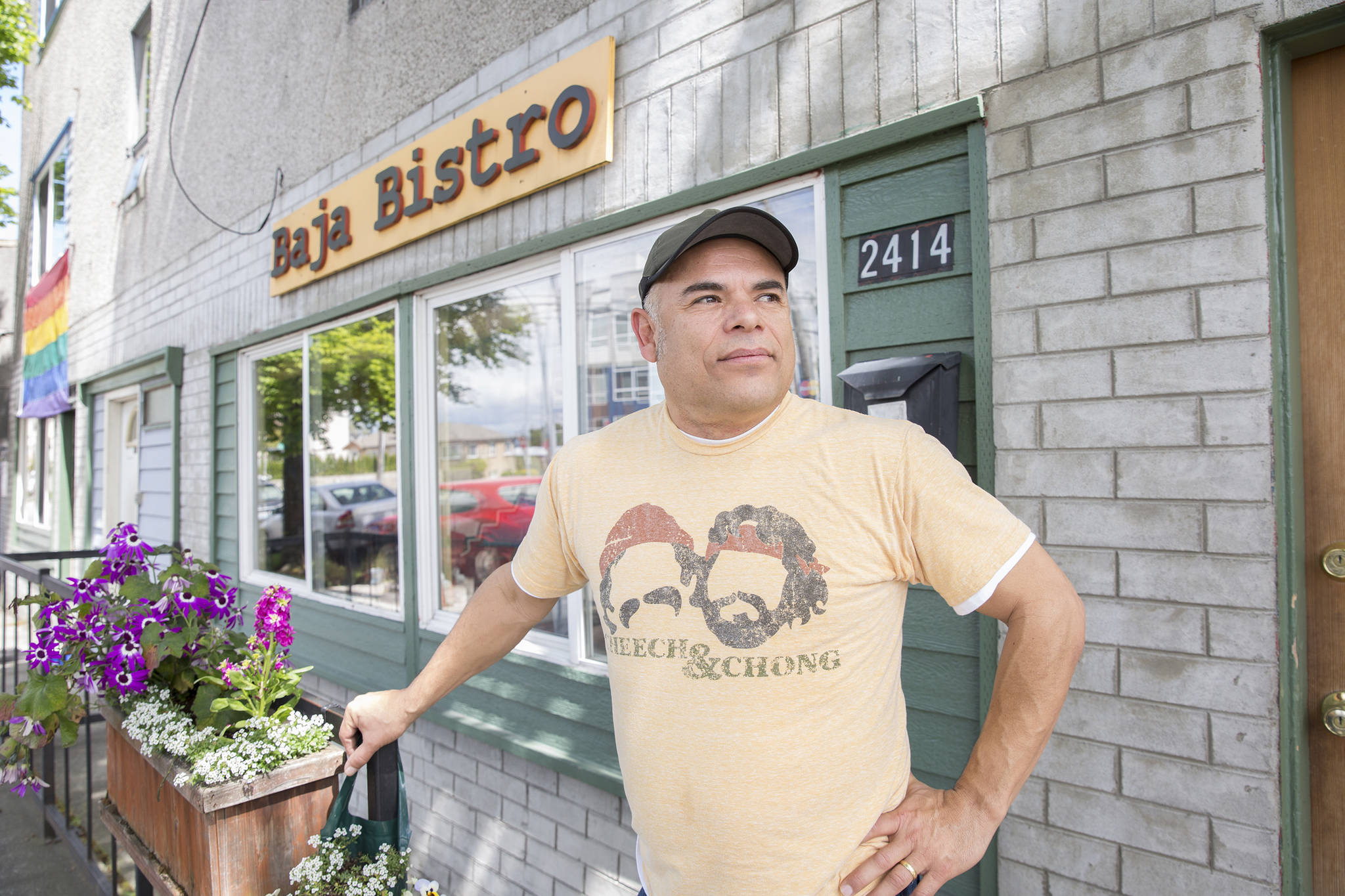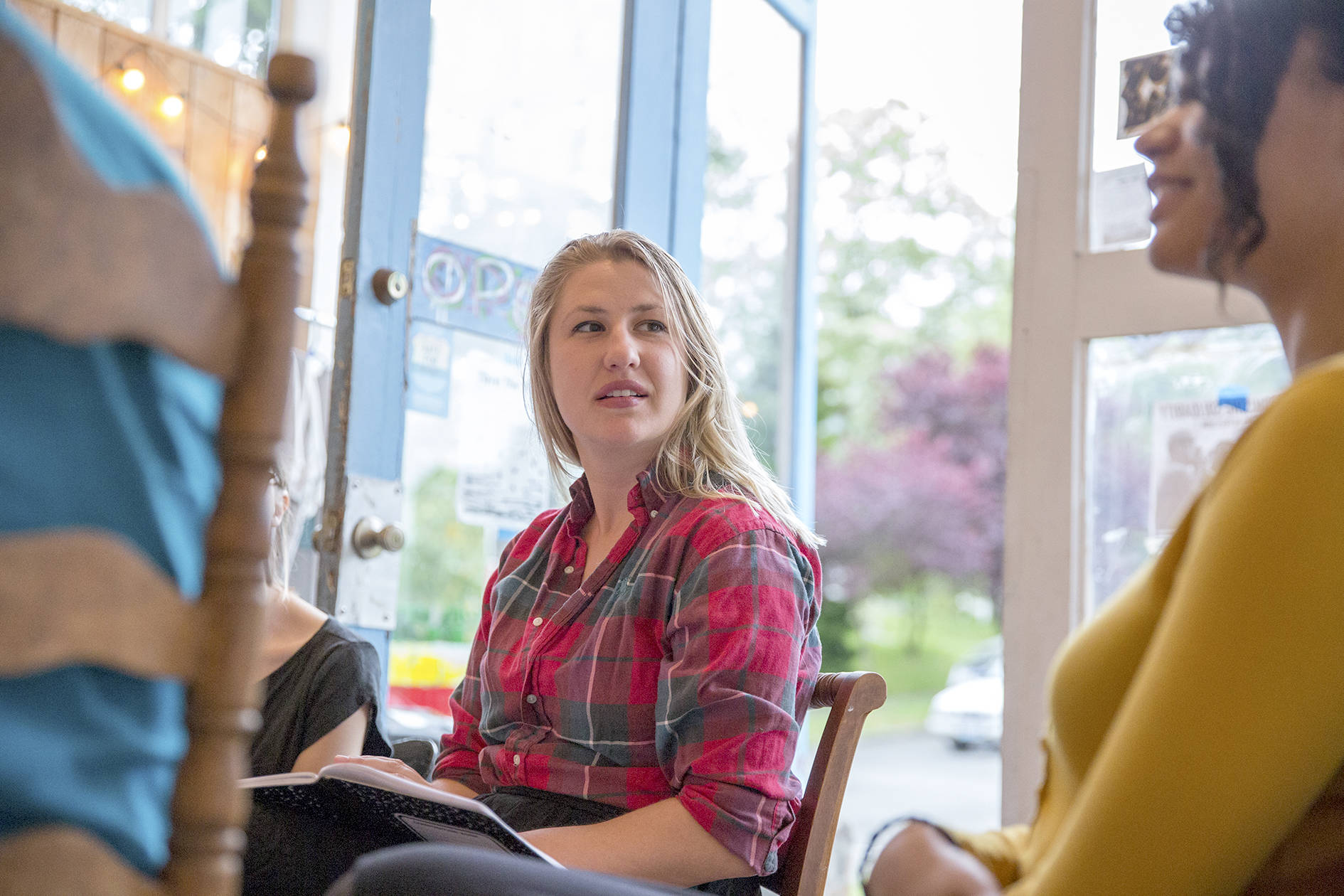Ebo Barton was always fascinated with the people who took the stage at Da Poetry Lounge in Los Angeles, but the L.A. native never dared to. It wasn’t until they were serving in the military that Barton could no longer resist the urge to perform. “I was in the Navy for two-and-a-half years, and that’s a place where you’re silenced at all times, your opinion doesn’t matter,” they say. “I did a lot of writing on my aircraft carrier that I was assigned to without telling anybody about it.”
At port in Everett, Barton started looking into slam events around the area. Finding Seattle Poetry Slam (7 p.m. every Tuesday at Re-bar) provided Barton a space to be heard. “I think I won the first time I slammed,” they say. “I was like, ‘Oh, maybe I am not so bad.’ ”
The slam community provided Barton with the kind of visibility unthinkable on the aircraft carrier. “At the time I identified as a woman,” Barton says. “I’m a person of color and was not being acknowledged for my contributions [in the military] … going to this safe space, weekly, having people care about your art, asking what you’re writing next … it was like this giant family of supportive folks.”
After a few years, Barton made the team. “I was sort of the Susan Lucci of slam poetry for many years,” they say. “I was always watching from afar.” Now Barton is something of a star, having placed fifth at the Individual World Poetry Slam. They also recently left Seattle for a month-long slam-poetry tour, stopping in Berkeley, Las Vegas, Los Angeles, Phoenix, Austin, Houston, and Fort Worth.
Barton’s face lights up as they mention the upcoming 25th anniversary of the Seattle Poetry Slam. “We’re the longest-running weekly show in Seattle, and to watch people come back week after week, hearing poets from out of town talk about how they’ve always dreamed of performing at Seattle Poetry Slam, that’s been my inspiration.” Barton says the importance of hearing the variety of stories that come with the weekly slam cannot be overstated. “I work at a nonprofit that definitely has a niche community that it serves, so to hear so many different types of stories, it’s definitely the event that I need to go to.”
Barton’s art is intimate, their poetry coming from the struggles that accompany their racial, gender, and sexual identities. Politics is often broached, yet it is always approached from a personal point of view, which Barton says helps them better connect with their audience. “When I’m coaching poetry, I always say, ‘You get three minutes to talk to a roomful of people that paid to listen to you, what are you going to say?’ I take that advice for myself all the time too.”
Mentorship, coaching, and education also play a big part in Barton’s day job at Gay City, where they work as a youth program manager. The work Barton does helps educate organizations around Seattle. “I’m giving them the revelation that there is not a way to distinguish whether or not somebody is a queer person,” Barton says. “I’m giving them the tools, resources, education, or information they need to properly talk to someone.”
Barton also helps run Queer Corp, an art and activism group that gathers weekly to discuss issues that impact LGBTQ youth—for example, that youth of color and LGBTQ youth are targeted by the marijuana and tobacco industry. “A lot of these marketing systems are using their language in order to market to them,” they say. “We talk about all of these issues and how it impacts them, they then create media or art about it. We’re doing short films on the marijuana and tobacco industry.”
Barton is experimenting with new means of expression as well, shifting from poet to playwright. Last year they and Sarah Rosenblatt co-wrote Rising Up, a “queer social-justice play” recently produced at Gay City that tells the story of a black transgender woman who leaves a failing relationship, moves into a co-op house in the Central District, and ultimately learns who she is outside of her previous relationship. The play’s success is a testament to the community, says Barton. Not only did every performance sell out, but $12,000 was raised via GoFundMe. “We were able to pay our artists and crew fair wages,” Barton says.
Barton wore many different hats during the production, co-directing with Neve Andromeda Mazique-Bianco and even playing a small role. Perhaps Barton’s most important role, though, was facilitator. “It was a collaborative process. A lot of the ways in which we wrote it were changed to better identify with the actor or the way the actor wanted to play that role.” Barton says it was of paramount importance that the actors be able to have a say in shaping their roles, to help avoid the kind of misrepresentation that is common even in the most well-intentioned works. “Our main character is a black trans woman,” they say. “I don’t want to fail her, like the way the world has failed her time and time again. It had to be a collaborative process, otherwise it wouldn’t have worked.”
Barton hopes Rising Up has opened minds, helping other artists release some of their creative control and realize that one person doesn’t haven’t to do everything, and that maybe they shouldn’t. “That will give queer and trans folks, specifically queer and trans people of color, the opportunity to tell their own stories. Why not let us tell them?”
arts@seattleweekly.com
